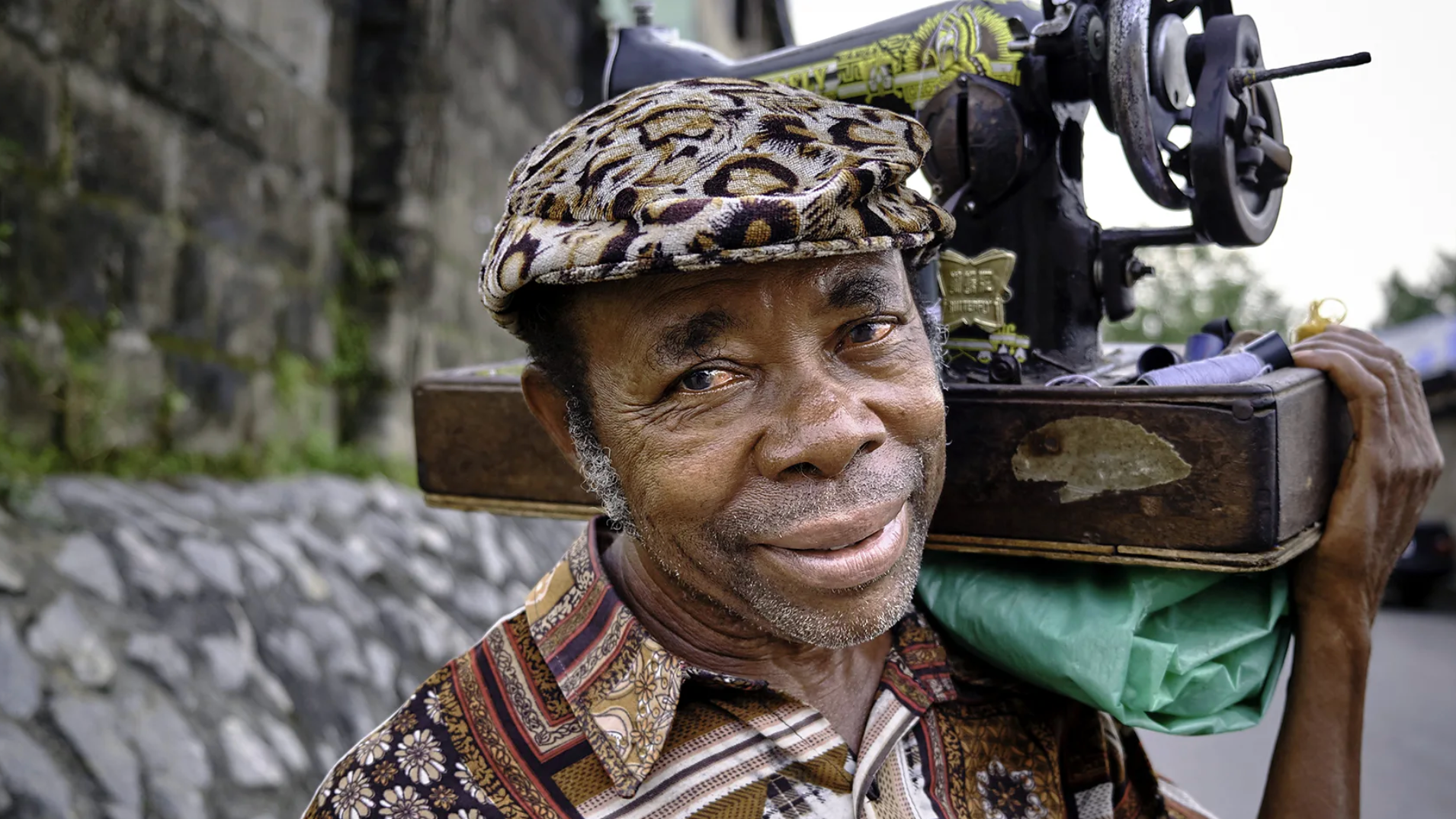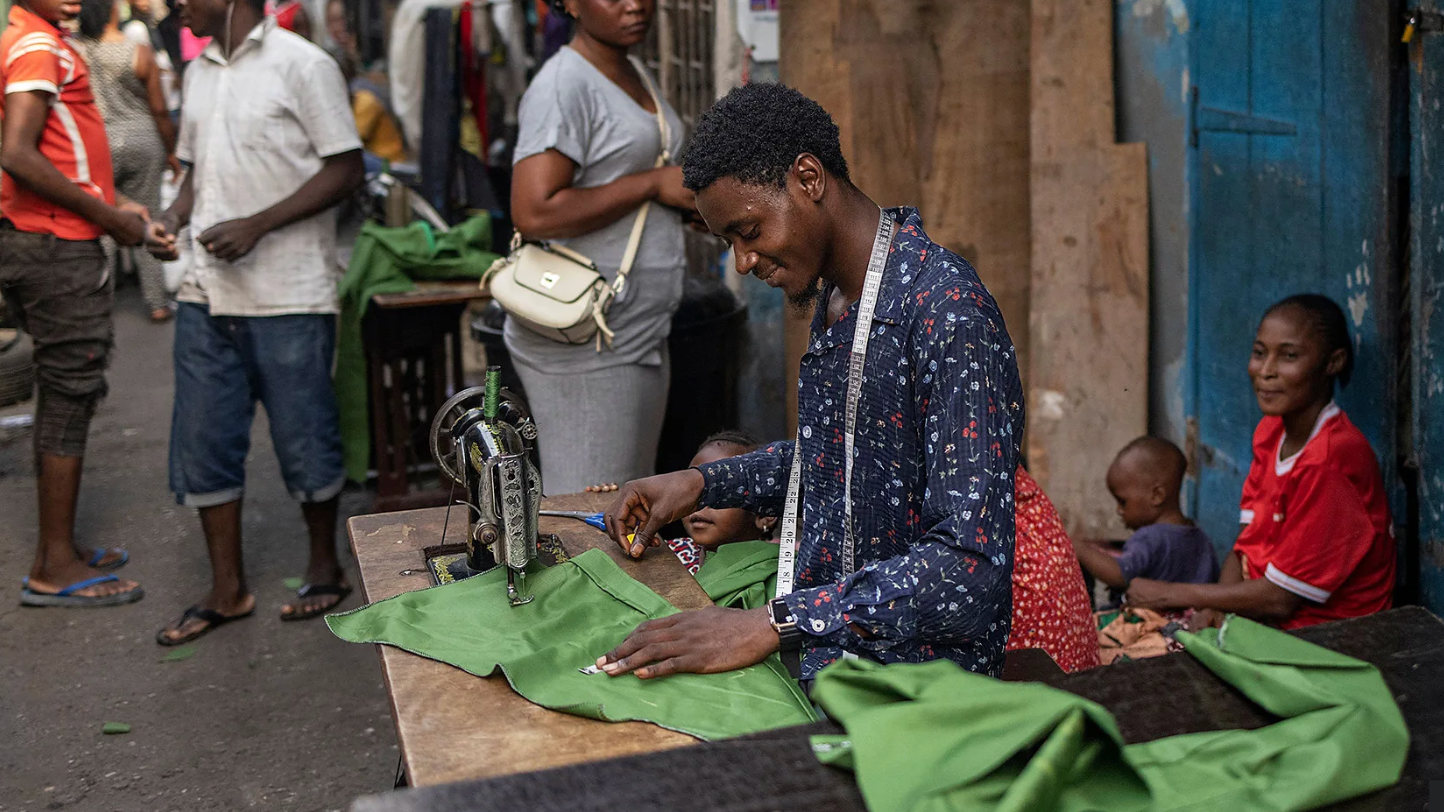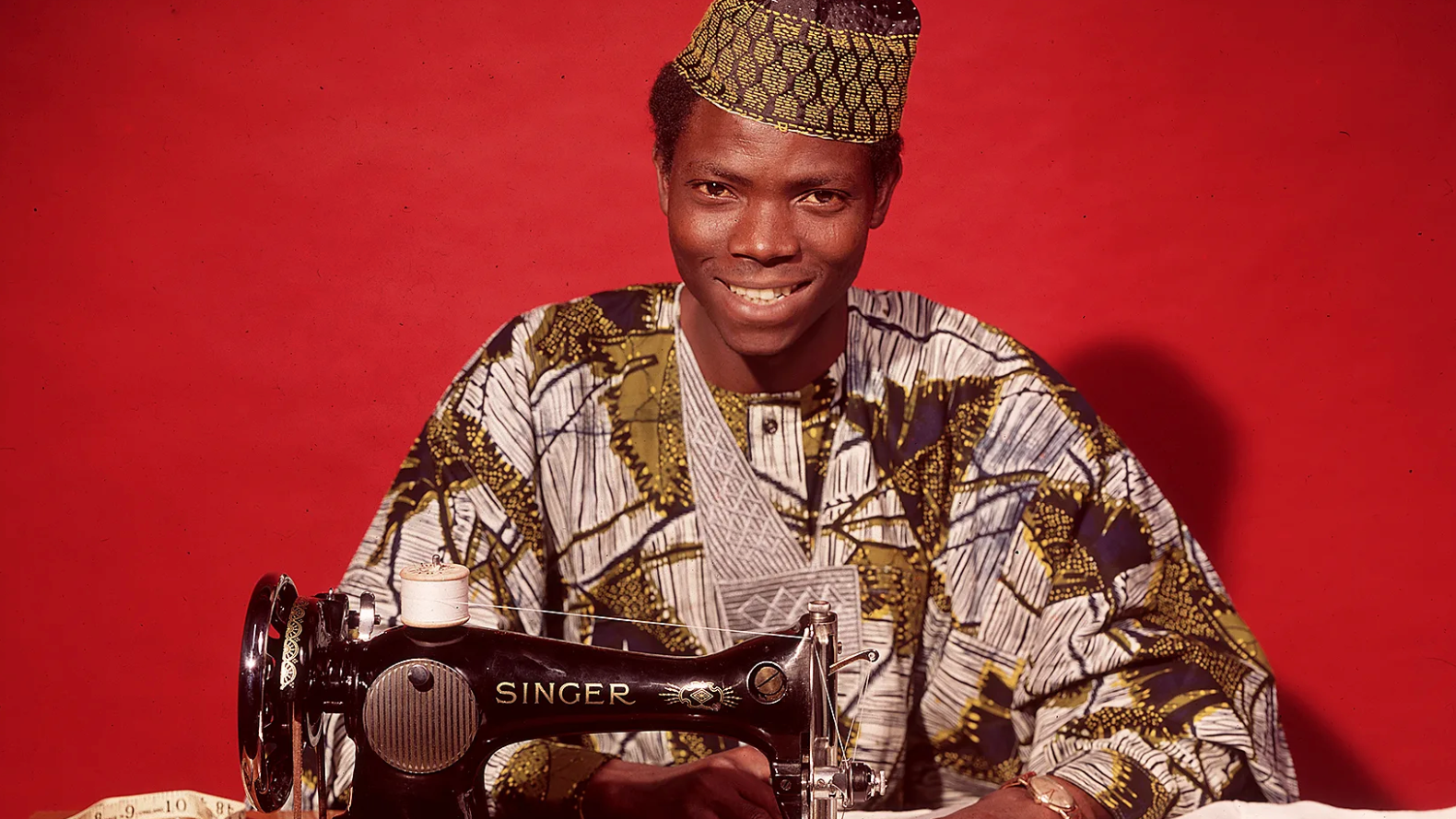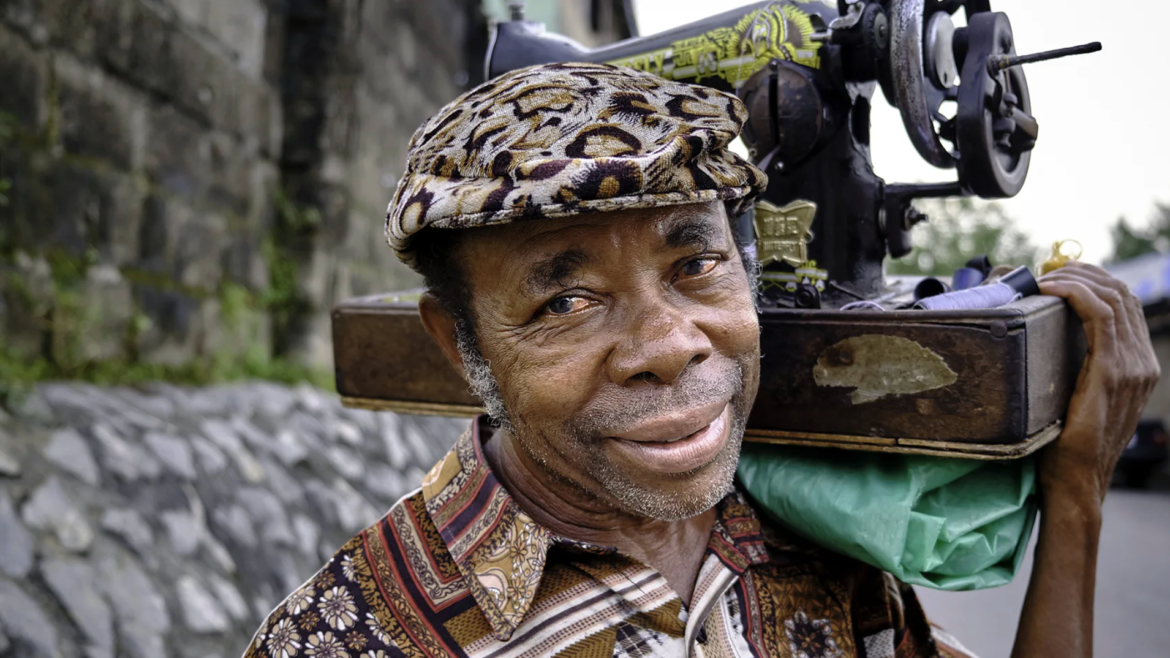
Di sound of scissors clashing on top sewing machine ‘kai kai kai’, and di voice of a man shouting “obioma oh”, na how mobile tailors – or obiomas – dey take tell dia customers say dem don show for area.
Obioma pipo bin dey very popular for Nigeria around di 1970s.
Dis na mobile tailors wey go carry dia sewing machine on top dia shoulders, dey waka about for street looking for pipo wey dem go mend clothes for, either to fix a zip here, or shape some trousers there.
Dia work na im set di tone for di relationship wey Nigerians get now wit alterations and tailoring.
Plenty tins don dey written about how important tailoring dey to fashion lifecycle.
Atelier – one boutique wey Hollywood star Angelina Jolie recently open for New York – consider tailoring so important wey be say dem dey offer customers wey buy clothes from dem di opportunity to customise di clothes wey dem buy on di spot by dia in-house tailors.
But di average clothing consumer no too know much about tailoring.
Nigerian-American stylist and writer, Subrina Heyink – wey don work wit clients from different backgrounds – tok say she find am easy to relate to tailoring sake of her upbringing for Nigeria.

Like Heyink, many adults for Nigeria get relationship wit one tailor or anoda.
Mothers go usually carry dia pikin dem clothe go give tailors either to transform old items, or request new styles from new fabric.
As di children dey grow and life dey change, dem go den maintain di tailoring relationships wey start from dia mothers, or dem go develop dia own relationships either through search for dia new area or through word-of-mouth recommendation. But e sure say, at least one pesin for evri family must know of a tailor.
Abubakar, one ‘obioma’ wey start im work for Sokoto, northern Nigeria, but now e dey work for Lagos, explain say plenty of im customers na regular pipo wey discover am for street, give am some clothes to test am, dey impressed, and now dem dey call am anytime dem get clothes to sew or mend.
To get tailor wey you don know and dey use for years get advantages.
“Dat na person wey know your taste, your measurements and maybe even your lifestyle and e fit help reduce how many clothes wey you dey troway sake of damage by inexperienced tailors or tailor-client communication breakdowns,” Olusola Idowu, tok.
Idowu belong to di Nigerian arm of di Fashion Revolution climate activism group.
Dis tailor-client communication breakdown don turn to jokes and memes for social media about “wetin I order vs wetin I get”, and majority of di jokes dey refer to di disappointing products wey customers receive from some fast-fashion brands.
“Nigerians believe say dem fit mend any kind of cloth – we don see pipo bring in evri tin for our tailors to mend, from bras to waist trainers to duvets,” Kanyinsola Doherty, of Mend Lagos tell di BBC.
Doherty start ‘Mend Lagos’ to address di need for specialised adjustments wey pass wetin obioma pipo fit do.
Times don dey change
For di traditional obioma pipo, times don change for different reasons, and many of dem don dey phase out.
Security na one of di reason. As crimes dey increase, many pipo don dey get area vigilante, and dis don limit how pipo wey no dey stay for di area go fit dey come in or comot, so obioma pipo no dey able to dey waka enta any street like bifor.
And di economic downturn don also get effect – due to inflation, many don dey see say di business no too dey sustainable, so dem don comot.
Even though to mend some clothes dey challenging, Joseph Ndache wey be head tailor for Mend Lagos tok say na work wey e dey proud of.
Dis dey point to a culture of extending di lifecycle of tins wey pipo bin think say e don dabaru pata-pata.
However, no be evri tailor dey open to mending all items. Memunat Momodu, wey get her own tailoring shop, tok say she dey prefer to create new garments rather dan mend old ones, becos e dey too waste time.
And some young Nigerians wey bin learn basic sewing skills for school during Home Economics classes don pick am up again.
Joy Cletus tok say na economic condition force am her to pick up skills like hemming and taking clothes in, and she don even buy her own sewing machine.

Tailors like Momudu wey choose to stop mending clothes pata-pata, no dey ever lack clients.
Romanda Ihunenye, of di Fashion for Charity organisation, tok say for one informal survey wey dem do for Owerri, Eastern Nigeria, 50% of di young women dem askquestion tok say dem prefer to sew new clothes rather than repair.
Ihunenye’s organisation dey help extend di lifecycle of leftover materials, particularly local cotton, as dem dey give am directly to communities wey no too get clothes.
Beyond choosing to dey sew new clothes, e get other factors wey don shift di mindset of mending clothes for Nigeria in recent times.
As Idowu take tok am: “Plenty clothes wey dem dey make now no just dey fixable, especially as more young Nigerians dey gain access to fast fashion either directly through di retailers or through thrifted clothes from di West wey dem dey dump for Africa.”
Dis dey create problem wia di tailors no dey able to salvage di clothes bicos dem cut am into styles wey make am impossible to re-work di fabric, and so dem go just dump di clothes.
Doherty tok say her tailors dey get anoda challenge – wia dem end up shortening di lifecycle of clothes bicos di customer want a fit wey dey less about comfort and room for expansion, and more about “showing a figure” wey dey inspired by western ideals.
But some young Nigerians, such as di ‘Dye Lab’ brand, dey push back against western influences.
Dem dey redefine Nigerian fashion trends by reinterpreting traditional boubous and kaftans, wey dey intentionally designed to be loose fitting and made from traditional, sustainable fabrics.
As a “craft brand” wey dey create “small batches” of hand-dyed garments, dia approach dey echo di Nigerian sartorial sensibility – artisanal fashion wey dey both personal and practical.
As Idowu take tom am about im fellow Nigerians: “We make di garments our own. We develop emotional attachments to dem.”
- Why I dey bring back di old food wey our forefathers dey chop
- ‘I be 70-year-old, dis na my only source of livelihood, wia I wan start from at my age’ – victim of Lagos fire recount loss
- Why I no need naked women for my content
- How to keep safe as thunder strike kill secondary school students for Awka





